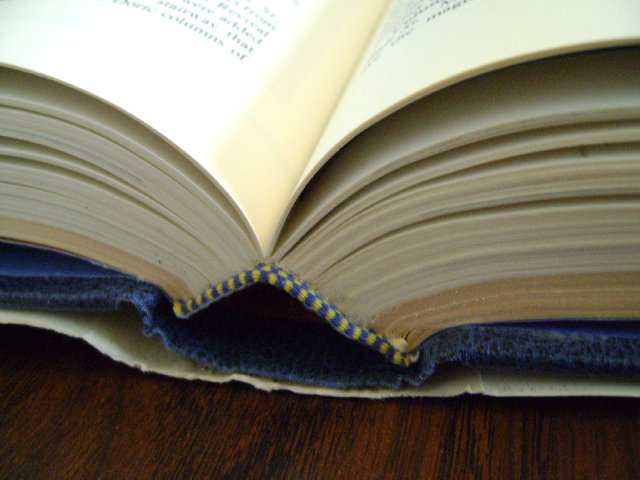Publishing Industry Terms and Contracts: Some Resources, and Some Advice
Posted by Victoria Strauss for Writer Beware
On my last post, a reader posted this comment:
Can you recommend a site where publishing contract terms are, if not
discussed, defined (and maybe have a note like “This is good, this is
okay, this is bad”)? I know I’d have an attorney explain any contract to
me anyway, but it would be nice to have some working knowledge to begin
with.
Like many other things to do with publishing, there’s no one definitive source for this kind of information–you have to pull it together from multiple locations. Below are some resources that I’ve picked up in my travels around the Internet.
(Always, always vet the source for information like this. Make sure that the individual or group compiling it is qualified to do so. One of the things that’s never in short supply on the Internet is bad or outdated or incomplete information put together by people who know even less than you do.)
Glossaries of Publishing Terms
– Author and former literary agent Nathan Bransford provides a pretty good set of definitions.
– Here’s another glossary,
from the Association of American University Presses (this includes a
lot of terms that have been made obsolete or nearly so by digital
production).
– Yet another glossary, from The Editorial Department.
– A glossary specific to children’s book authors, from author and editor Harold Underdown.
Publishing Contract Resources
– SFWA’s page on publishing contracts. I provide this with a major caveat: ignore the model contracts, which are so outdated as to be nearly useless. Do check out, however, “An Introduction to Publishing Contracts,” which provides a helpful discussion of many publishing contract clauses and terms.
– This article from publishing and entertainment attorney Lloyd J.
Jassin is written from the publisher’s perspective, but provides a helpful checklist of the components of a book contract.
– Advice on book contract clauses from intellectual property lawyer Daniel Steven.
– The Authors Guild on improving your book contract.
– A checklist of publishing contract deal terms, from IP attorney Howard G. Zaharoff.
– David Koehser, also an IP attorney, provides advice on how to read a publishing agreement.
– Agent Rachelle Gardner on the book contract clauses she is most likely to negotiate.
– KeepYourCopyright.org provides examples and discussion of actual book contract clauses, good and bad.
– Publishing lawyer Mark Fowler provides some suggestions on resources for getting advice and information on publishing contracts.
– If you’d like experience-based feedback on your publishing contract (not legal advice–I am not a lawyer), you can email me: beware [at] sfwa [dot] org. (What does it say about me that I enjoy reading publishing contracts?)
Some General Comments
Most of the above resources assume that you are dealing with a professional trade publisher–which may be large or small, but is run by people who know how to acquire, edit, produce, distribute, and market books. Of course, no matter how reputable the publisher is or seems, you always need to watch your butt. Here’s one example of why, from several years ago: a change in Simon & Schuster’s boilerplate language that made rights reversion much more difficult.
But there are also enormous numbers of not-necessarily-very-professional small presses out there, whose staff may not be terribly experienced or knowledgeable–and with these, you REALLY have to be careful, since they may not have a good understanding of contract terms, or even be aware of what a publishing contract ought to include.
I often see small presses using a contract template they’ve picked up from somewhere, which may employ outdated terminology (such as referring to plates or unbound sheets) or contain unnecessary language (such as including a revised editions clause in a fiction contract) or make inappropriate claims on subsidiary rights (a larger publisher may be able to do something with translation rights, for instance, but there’s no reason in the world for a cash-strapped, contactless small press to claim them).
These templates may not have been especially author-friendly to begin with. Or they may have been altered to make them even less author-friendly–such as allowing the publisher to edit at will without input or permission from the author (something I see a lot in small press contracts), or paying royalties on net profit rather than on list price or the publisher’s net income, or requiring a permanent or temporary transfer of copyright.
It’s also possible that the small press has created the contract itself, which, if it didn’t receive expert advice, can result in unintelligible language, or copyright confusion, or perpetual options on series and sequels, or outrageous reversion clauses–or even no reversion clause at all (a big problem if the contract is life-of-copyright). Important clauses may be missing–the publisher may not be required to
print a copyright notice, for example, or there may not be a defined period of time in which the publisher must publish
or else return rights. A termination fee is another red flag, not only because it doesn’t benefit the publisher, but because the publisher can use it abusively.
Small presses, unfortunately, may be less willing to negotiate their contracts than bigger, more professional publishers. However, if you receive a contract that’s full of omissions and/or bad clauses, negotiation probably isn’t the answer anyway. A publisher’s contract says a lot about its attitude toward authors and the business of publishing. Even if you could get the publisher to remove the termination fee and the temporary copyright transfer, and option only your next work in the same genre, do you really want to go with a publisher for which such demands are the default position?
Good reason to be careful out there.



